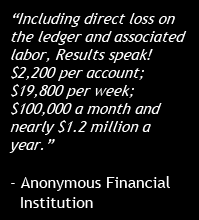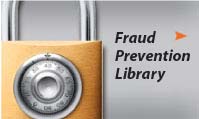
I-9 Compliance and Employee DOCUMENT Verification
Immigration and Nationality Act
Fraud Fighter gives Employers a "Good Faith" defense against I-9 Compliance penalties Instantly & Accurately achieve I-9 Compliance
The Immigration and Nationality Act (INA) includes provisions addressing employment eligibility, employment verification, and nondiscrimination. These provisions apply to all employers.
Under the INA, employers may hire only persons who may legally work in the United States (i.e., citizens and nationals of the U.S.) and aliens authorized to work in the U.S. The employer must verify the identity and employment eligibility of anyone to be hired, which includes completing the Employment Eligibility Verification Form (I-9). Employers must keep each I-9 on file for at least three years, or one year after employment ends, whichever is longer.
E-Verify Approves more than half of Un-Authorized workers
E-Verify has been touted by the U.S. government as the best and most secure avenue for employers to verify the immigration status of workers. Not so fast; it seems that undocumented immigrants that have well-made documents with a real person's data are likely to slip past E-Verify's electronic safety net. That's the finding of a report evaluating E-Verify by Westat, a Rockville, Md.-based research firm.
The report was posted in January of 2010 to the U.S. Citizen and Immigration Services Web site. The evaluation used models to estimate that E-Verify "verified" about 54 percent of unauthorized workers
If an employer can show that he or she has satisfied I-9 compliance requirements, then the employer has established a "good faith" defense with respect to a charge of knowingly hiring an unauthorized alien, unless the government can show that the employer had actual knowledge of the unauthorized status of the employee. Hiring with confidence, employers utilize Fraud Fighter equipment during the new employee hiring process strengthening their “good faith” position by having a reliable procedure in place to conduct ID document verification at the time the document is presented.
Penalties for failure to comply
If an investigation reveals that an individual has knowingly committed or participated in acts relating to document fraud, the INS may take action and individuals may be ordered to pay a civil money penalty as follows
- First Offense. Not less than $250 and not more than $2,000 for each fraudulent document used, accepted, or created and each instance of use, acceptance, or creation;
- Subsequent Offenses. Not less than $2,000 and not more than $5,000 for each fraudulent document used, accepted, or created and each instance of use, acceptance,
Complying with Form I-9 Requirements
Employees must present original documents, not photocopies. The only exception is an employee may present a certified copy of a birth certificate. On the form, the employer must verify the employment eligibility and identity documents presented by the employee and record the document information on the I-9 form.
The employer must examine the employment eligibility and identity document(s) an employee presents to determine whether the document(s) reasonably appear to be genuine and relate to the individual and record the document information on the Form I-9.
Under the INA, it is unlawful for anyone knowingly to engage in any of the following activities for the purpose of satisfying a requirement of the Act:
- To forge, counterfeit, alter, or falsely make any document;
- To use, attempt to use, possess, obtain, accept, or receive any forged, counterfeit, altered, or falsely made document;
- To use or attempt to use any document lawfully issued to a person other than the possessor (including a deceased individual); or To accept or receive any document lawfully issued to a person other than the possessor (including a deceased individual) for the purpose of complying with the employment eligibility verification requirements.














